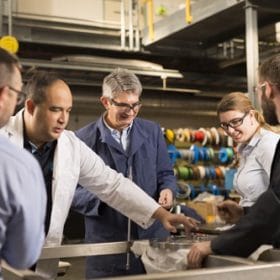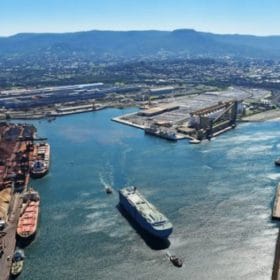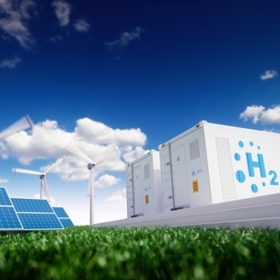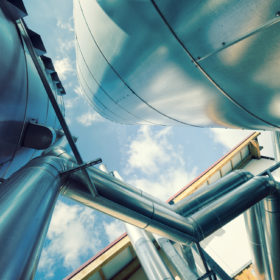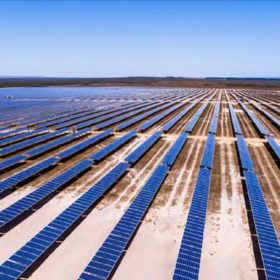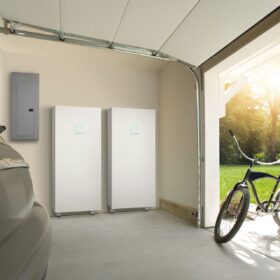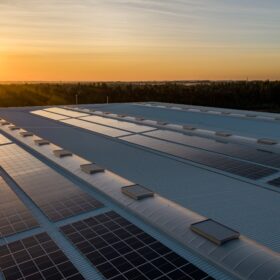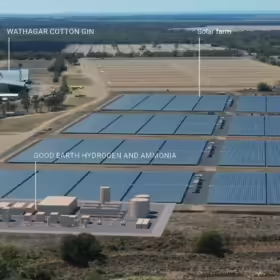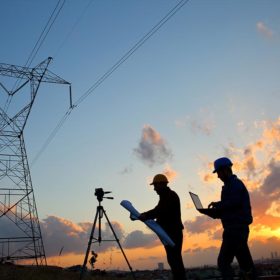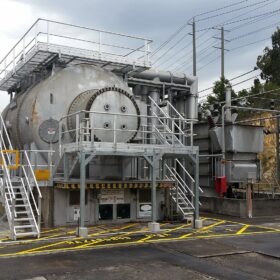Fortescue’s 2 GW electrolyser factory is just the beginning
Newly appointed CEO of Fortescue Future Industries Mark Hutchinson has made it clear that demand for green hydrogen has already far outstripped the company’s upcoming 2 GW electrolyser factory in Gladstone, Queensland. The announcement of new investments in green hydrogen plants from Fortescue Future Industries is now expected in the near future.
Green hydrogen could disrupt global trade, bilateral energy relations
While there are still many uncertainties as to the way in which hydrogen trade might evolve and change economic ties and political dynamics between countries, experts agree that green hydrogen can bring winds of change to the global energy arena. According to the International Renewable Energy Agency, significant geoeconomic and geopolitical shifts are just around the corner.
Weekend read: Australia’s “massive” hydrogen storage potential
Underground hydrogen storage seems to be coming up a lot lately, and with the burgeoning hydrogen industry needing somewhere to store itself, it’s not hard to understand why. One of the countries with the best credentials for the future hydrogen economy is Australia. A newly published report has quantified the country’s “massive opportunity” for underground hydrogen storage.
Mission Possible: CSIRO launches $68 million Hydrogen Industry Mission
Australia’s national science agency, the CSIRO, has launched a collaborative “Team Australia” style mission bringing together actors from all aspects of hydrogen development and production toward the goal of driving costs below $2/kg and driving Australia toward hydrogen superpower status by 2030.
Four keys to getting Australia’s hydrogen economy right
As Australia’s hydrogen hype is substantiated by a pipeline of real projects backed by real money, questions around how to design Australia’s ‘future fuel’ industry so it doesn’t become a fossil fuel lifeline grow increasingly urgent. Nicky Ison, WWF Australia’s Energy Transition Manager, shares the four focal points she believes are key to ensuring Australia’s hydrogen economy is cleanly built.
Australian hydrogen expert launches advisory firm to accelerate hydrogen economy
The University of New South Wales’s Kondo-Francois Aguey-Zinsou, who heads the Hydrogen Energy Research Centre, has launched H2Potential, a hydrogen advisory firm that seeks to incubate and accelerate some of the world’s most promising hydrogen companies as well as advising prominent companies and industry how to join the hydrogen revolution.
The weekend read: The race for green hydrogen
Large swaths of low-cost land: check. Lots of sun and wind: check. The ability to transport green hydrogen cost-effectively to energy importing economies: check. Then you’re in the race to become one of the “renewable energy superpowers” of the low-carbon economy. A growing number of countries are assessing their renewable resources and natural attributes and positioning themselves to become green hydrogen exporters. However, not all are created equal.
Japanese giant backs QLD green hydrogen plant and Omani grey hydrogen competitor
The Sumitomo Corporation has simultaneously signed a contract with an EPC for a solar-powered green hydrogen production plant in Gladstone, Queensland, while also commencing a feasibility study for a grey-green hybrid hydrogen project in Oman. Considering the relative similarities in distance between the two countries and export markets in East Asia, the Japanese conglomerate looks to be setting the stage for competition in the hydrogen economy.
WA’s Mid-West green hydrogen potential flooded with global interest
Last year the Western Australian Government called for Expression of Interest into its potentially 1.5 GW solar and wind hydrogen hub at Oakajee Strategic Industrial Area on the state’s Mid-West. This week it has been revealed that 65 companies from around the world have submitted serious interest in making it happen.
The geopolitical impact of hydrogen
In an interview with pv magazine, Indra Overland, head of the Center for Energy Research at the Norwegian Institute for International Affairs, explains how international hydrogen strategies may play out in the upcoming decades. Plans and roadmaps will not be enough to turn a hydrogen economy into reality and its success will depend on becoming cost-competitive vis-à-vis other solutions in several areas, he says.



